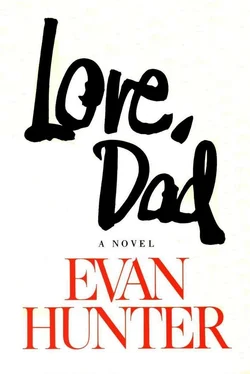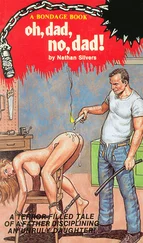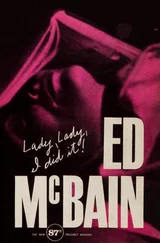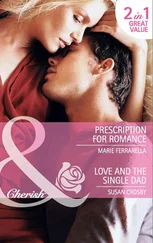I am making this short because I’m eager to seal the envelope and get it off to you, knowing it will take forever to reach you. Please write as soon as you receive it, and please, Lissie, tell us your plans have changed!
Love,
Dad
He had spent almost the entire day with a fashion editor named Lucy Katz, a bright New York Jewish girl who’d graduated with a B.A. from Brooklyn College and who was working her way up to Vogue via McCall’s. She was twenty-four years old, a virtually hipless, titless blonde with Joanna’s blue eyes and a voice not unlike hers, distinctly New York-sounding, with an added flavor of Bensonhurst. They’d spent ten hours together working with a model who’d learned to walk in Skokie, Illinois, shooting take after take of her in a fall wardrobe, and finally quitting at 9:00 P.M., with the promise, or threat, of an 8:00 A.M. shoot ahead of them tomorrow. He’d called home to tell Connie he’d have to stay in the city that night, and then had accepted Lucy’s contrite (“It’s the least McCall’s can do for you”) invitation to dinner. Sitting side by side in the restaurant booth, commiserating about the shlock model who was getting seventy-five an hour, he startled himself by calling Lucy Lissie, and then — because the wine was good and the hour was late — he told her all about his daughter’s phone call from Venice, and the way he’d mishandled it, sending her a prepaid ticket instead of the money she’d wanted, which was maybe why she’d cashed the ticket in, after all, because he simply hadn’t trusted her enough with the cash.
“When I was a kid,” he said, “this was in September of 1939 — I was thirteen years old, my father was still alive — these three older kids and I cooked up a great idea on how to spend our last weekend before going back to school. We wanted to go fishing. We were all city kids, and none of us knew one end of a fishing pole from the other, but this was the end of summer, the Labor Day weekend, and we decided we’d ride our bikes up to City Island, and go fishing from the dock there...”
His father had been sitting in the kitchen washtub, taking his nightly bath, when Jamie came home to tell him about the plan. He was a giant of a man, and his knobby knees came to just under his chin as he soaped himself in the narrow boxlike tub and sang at the top of his lungs. He was singing “Now’s the Time to Fall in Love,” a Depression song about potatoes and tomatoes being cheaper; Jamie could to this day remember the song his father was singing on that September night in 1939. Before the Depression, his father had been a typesetter on the old New York World, had lost his job when the paper was purchased by Scripps-McRae in 1931, and had since held a series of odd jobs, doing whatever kind of work he could get. He’d started working that summer for the ice and coal station on Second Avenue, making deliveries for them all over Manhattan. When he got home each night, filthy with coal dust, he’d strip naked in the middle of the kitchen and climb into the washtub alongside the sink. He was in the tub that night, singing about the butcher, the baker, the candlestick maker, when Jamie excitedly unfolded the plan to him.
His father said no.
He had a lot of good reasons. It would take them forever to get to City Island by bicycle. The roads would be packed with traffic on the Labor Day weekend, and therefore dangerous. Where would they get fishing poles, did they have money to rent poles, did Jamie think money grew on trees? And how could they fish from the dock there, where seven hundred other people would be trying to do the same thing, seven thousand other people. They would have to rent a rowboat, did they have money for a rowboat, did Jamie think money grew on trees? And what did they plan to use for bait, and what ungodly hour of the night did they expect to get home, and on and on his father went, the wet coal dust streaking down his face, the washtub filling with blackening suds, his knobby knees poking islandlike out of the water. “The answer is no,” he said, and went back to singing about this being the time to fall in love.
“I keep thinking,” Jamie said now, “that maybe I’ve said no too often to her, that if maybe I’d said yes once in a while, she wouldn’t be in Greece today, and planning to move on to India. If I could relive that phone call from her, I’d do it in a minute.”
“You really do love her a lot, don’t you?” Lucy said, and gently put her hand on his arm, and suddenly he recalled the woman in Louisville who’d said, “You’re really a very genuinely deep nice man, aren’t you?” and the way Joanna had later mimicked those words.
“But you mustn’t blame yourself, really,” Lucy said, her voice very much like Joanna’s, higher-pitched but with the same cadences and lilt. “I wish I had a nickel for every time I gave my father a heart attack. It’s part of growing up,” she said, seemingly unmindful of the fact that she herself was only twenty-four, “something we all go through,” her hand touching his arm again, resting there, “but we all get over it.” She smiled, withdrew her hand to lift her wineglass, smiled over the glass as she sipped at the wine, put the glass back on the table again, and then rested her hand on his arm again, the fingers widespread.
After dinner she walked him to the Plaza, where he’d booked a room for the night, and asked if he’d like to have a nightcap in the Oak Bar. When he said he thought he’d better get some sleep before having to cope with the Skokie Marvel again, she said, “Or maybe you’d like to come to my place instead. For the nightcap, I mean. I’m right on Thirty-eighth.” He thanked her, but said no again, and they shook hands and said their good nights. Narrow hips swaying, she went down the steps opposite the fountain, and hailed a taxi.
It was close to midnight. Alone in his room, he almost called Joanna.
And then he thought, No, she’s forgotten me by now, she won’t even remember what I look like. Lew Barker, who was the biggest swordsman Jamie knew, once told him he was constantly shocked by the infidelity of women. “Not the playing-around of married women,” Lew had said, “that’s not the infidelity I’m talking about. Perhaps I mean inconstancy. Yes, that’s a better word, however Shakespearean. Inconstancy. I am constantly shocked by their inconstancy. I’ll enjoy an affair of several months’ duration with this or that delectable young thing, and then for one reason or another will not see her for a while. And then, if I call again to announce myself and my renewed intentions, why this young lady will say she’s no longer interested! When I remind her of the joys we shared together, the ecstatic heights to which we’d been transported, the fun and the laughter, the gay madcap adventure of it all, the romance of wading in the Seagram Building’s pool or waltzing with a blind man on Fifth Avenue — why, Jamie, she’ll have forgotten it all, she’ll have put it out of her mind, she’ll have dismissed me as if I’d never existed. It’s enough to break an old man’s heart, I tell you. The inconstancy of women. Enough to break an old man’s heart.”
He lifted the bedside telephone receiver.
He knew her number by heart, still knew it, started to dial it, and then hung up. I should have taken her up on it, he thought, Lucy, I should have said, “Sure, why not, let’s go to your place for a nightcap, what the hell?” Same blond hair and blue eyes, same young good looks, exactly the same, what the hell. But not the same at all. Not Joanna. Whom he loved.
He turned out the light.
It took him a long time to fall asleep.
June 29, 1970
Читать дальше












